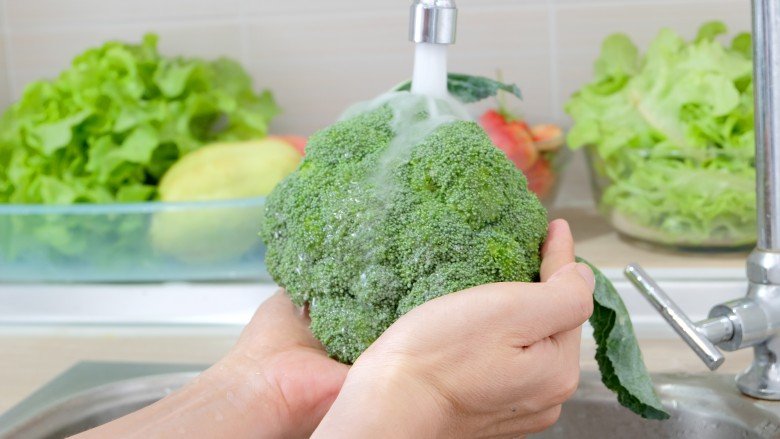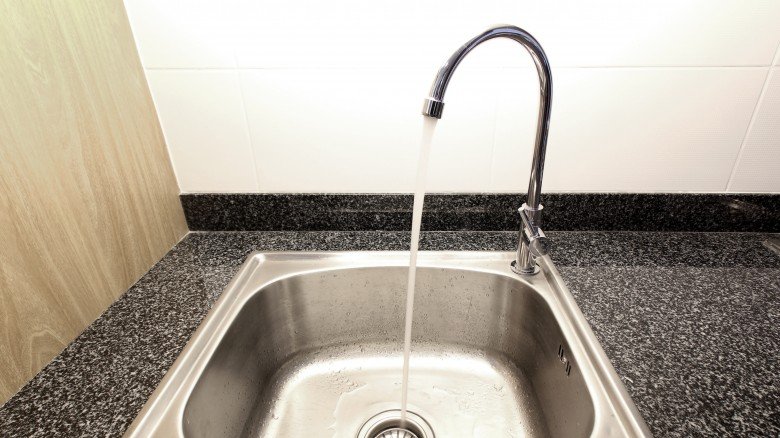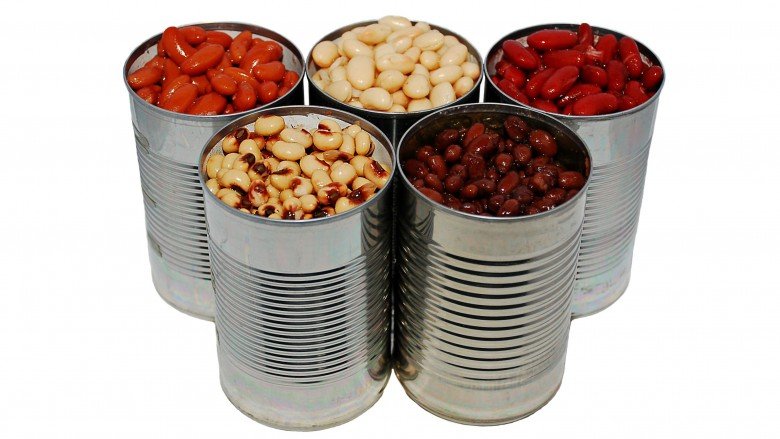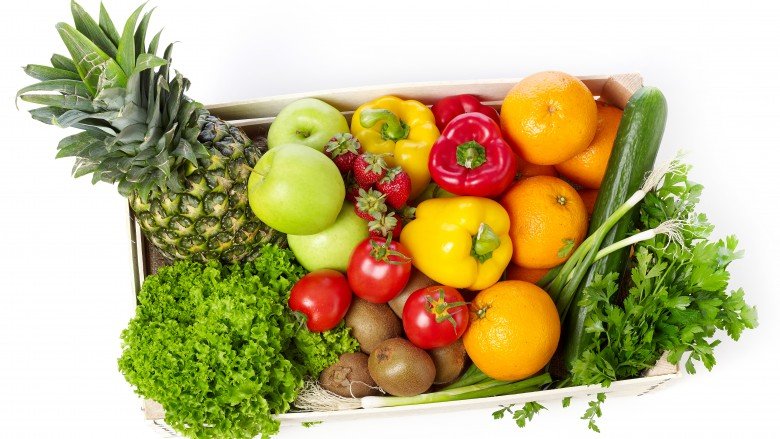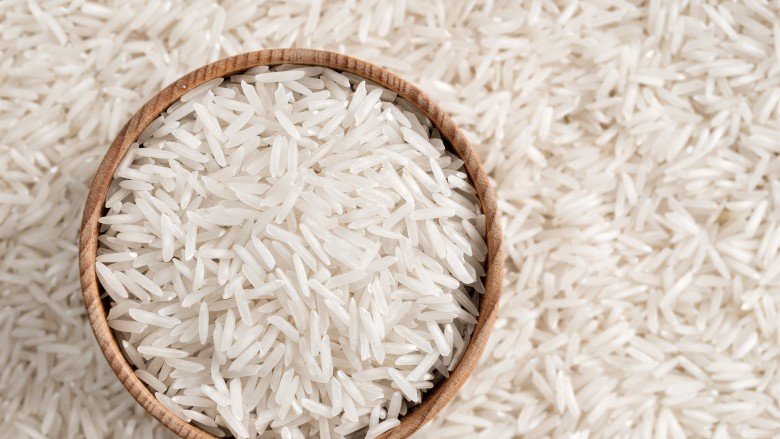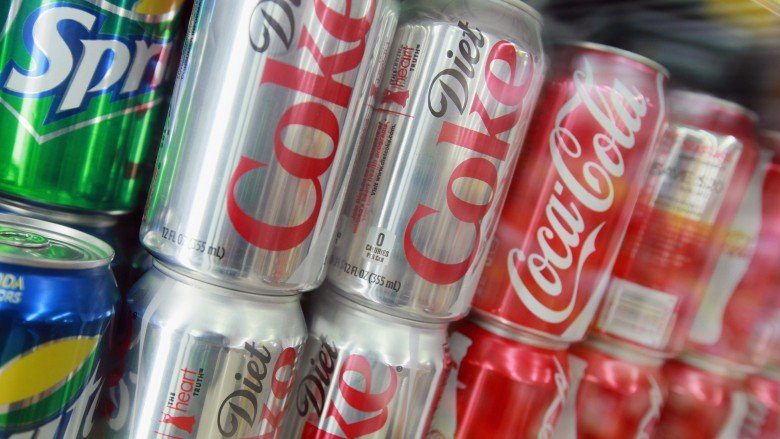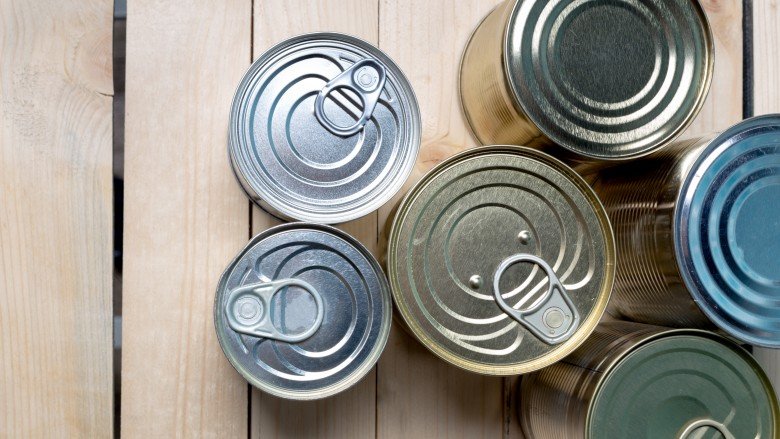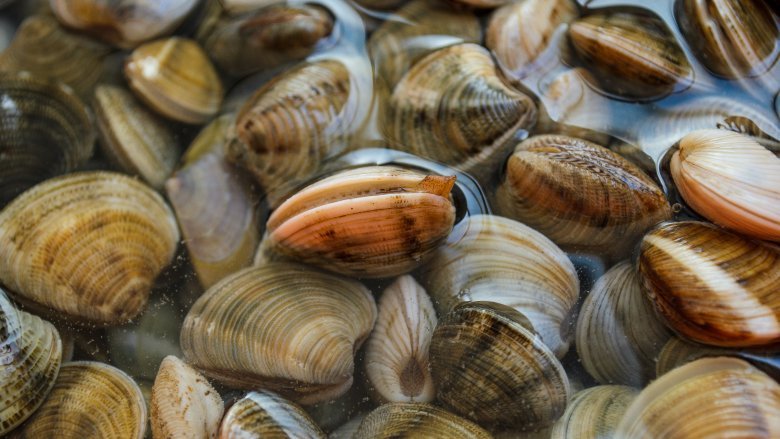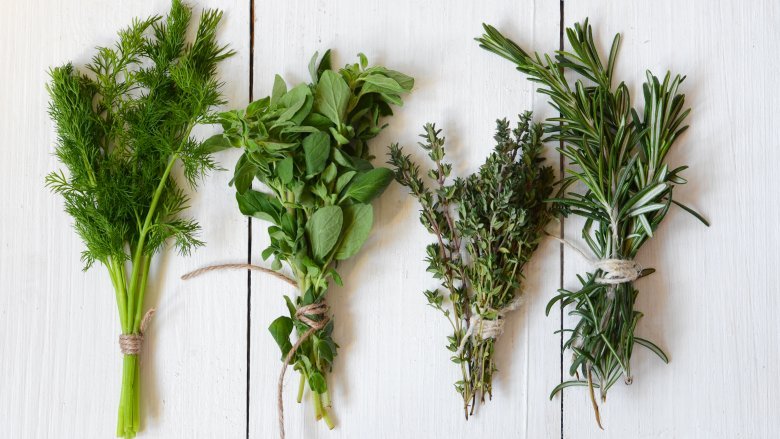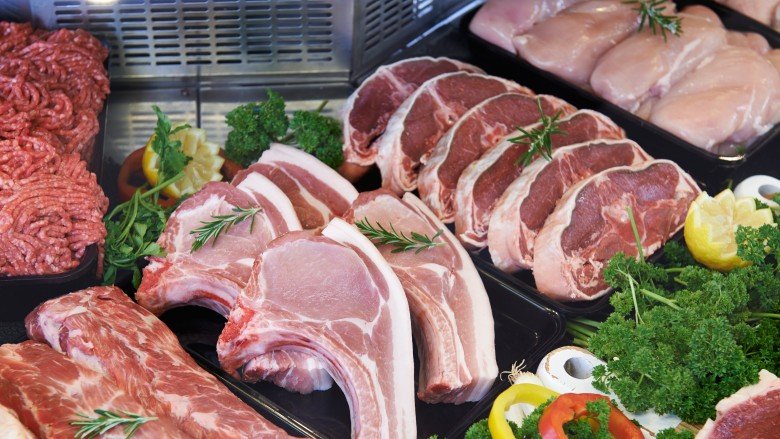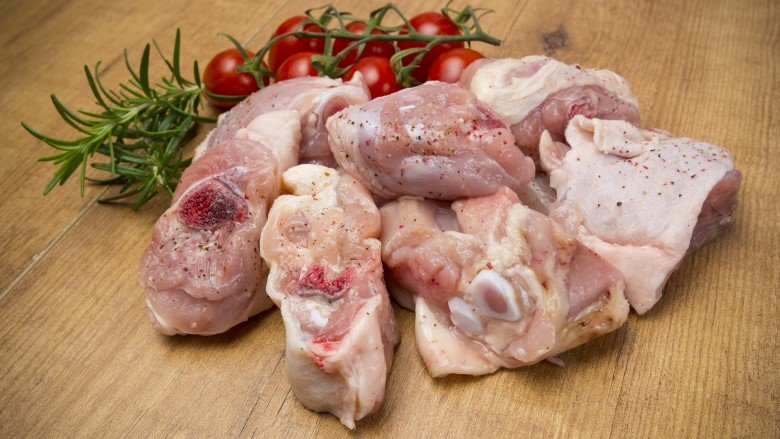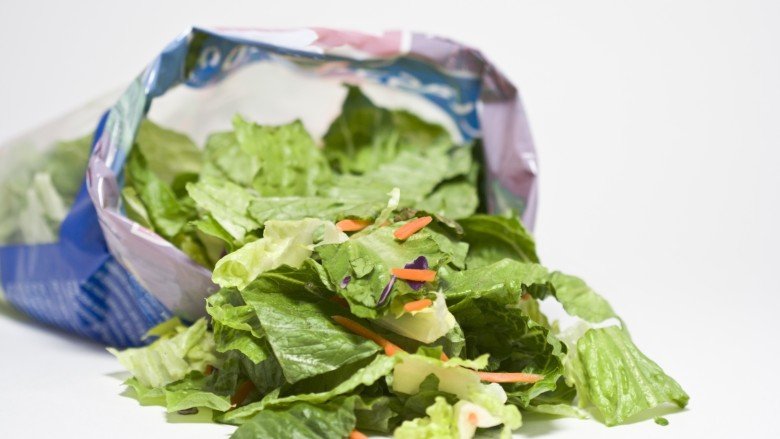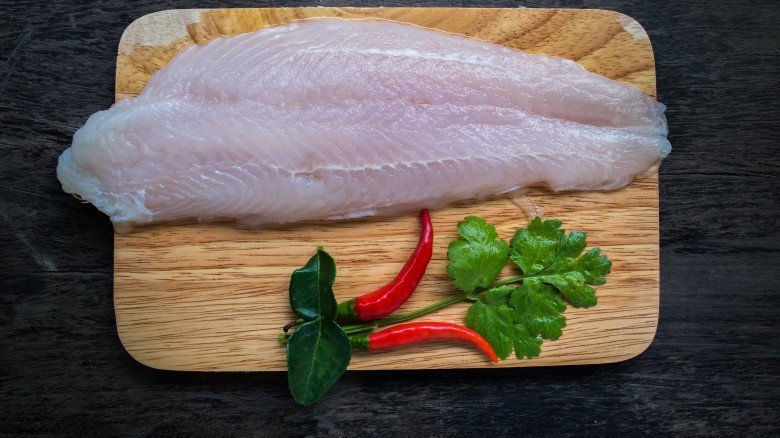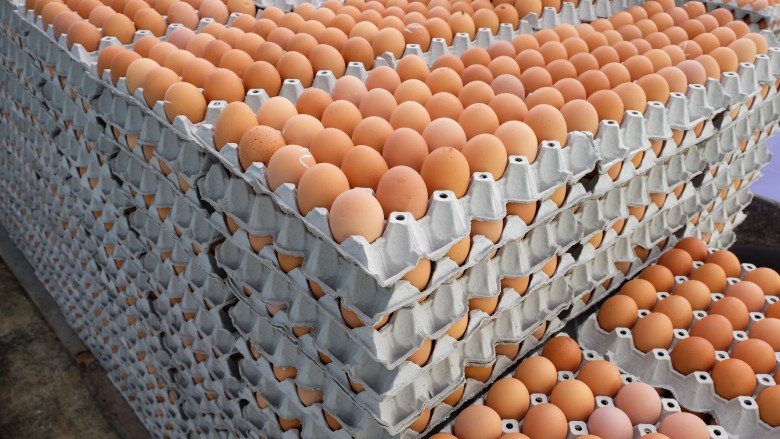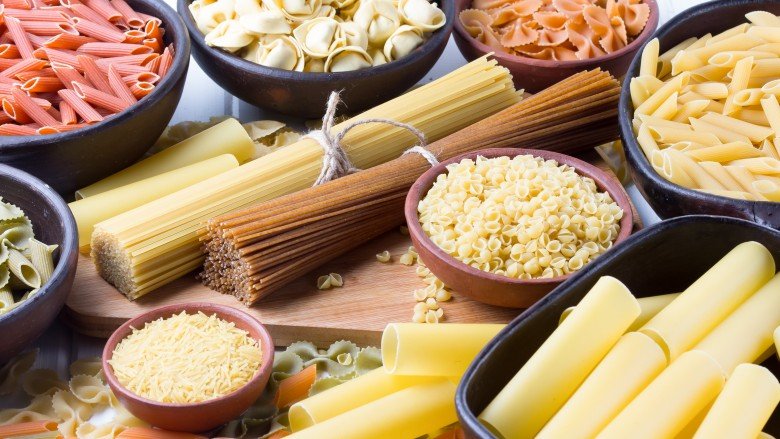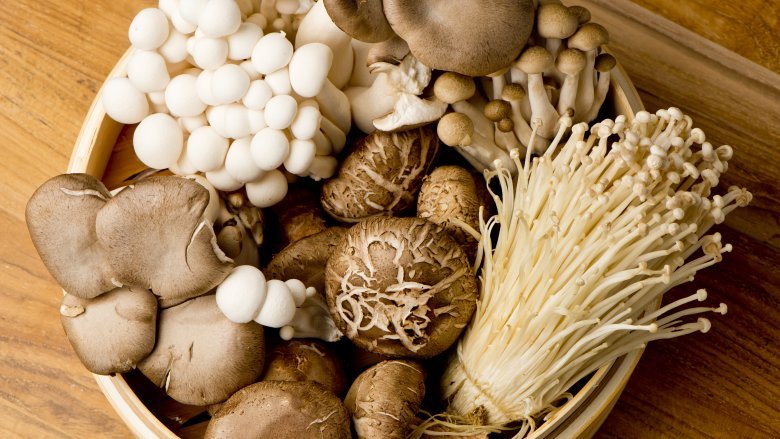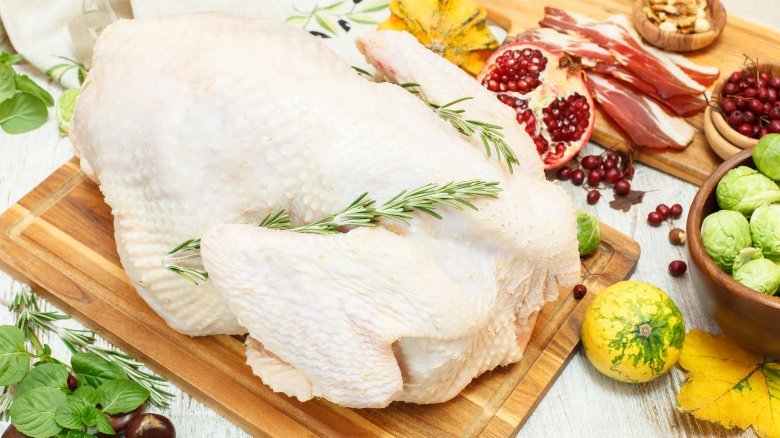7 Foods You Should Be Washing And 7 You Shouldn't
What's the first thing you do when you get home from the grocery store or the farmer's market? If the answer is dump all your new produce into the sink to be washed, there's a good chance you're doing it wrong — depending on what kind of produce you're about to wash. While it may seem somewhat intuitive to wash all your foods before eating them, not all ingredients require that type of care. Sure, washing produce is acceptable to everyone and a given for most, but what about everything else? There are actually some foods that should never, ever be washed — for one reason or another.
As you navigate the landscape of grocery shopping, you may not know exactly what the foods have come into contact with, which can be worrisome for a consumer. To help you figure out what you need to wash and what you don't, here's a brief guide that let's you in on the rationale behind both mindsets.
Um, aren't you going to wash that first?
Some foods require washing because they contain impurities that can be cleaned off using water without running the risk of spreading bacteria to other parts of your kitchen. As such, those ingredients or containers should be cleaned. In these cases, there are distinct health benefits that outweigh the risks. Read on to learn what you ought to wash before consuming.
Canned beans
If you're anything like us, you've stocked your pantry with at least a dozen cans of legumes "just in case." The extenuating circumstances could, of course, range from something as mild as forgetting to soak the dried beans the night before, to an end-of-world apocalypse scenario. Always good to be prepared, right? From cannellini and black beans to chickpeas and black-eye peas, we like to have them all as options.
While these already-cooked bean varieties are great for time-saving convenience, the liquid they're preserved in can be loaded with sodium. As such, the canned contents ought to be completely drained, then thoroughly rinsed with cold water to remove the salty residue. If you plan to saute or roast, you'll also want to take the extra step of patting dry with a paper towel so they don't steam.
Fruits and vegetables
You probably already know you should wash all fruits and vegetables before using them in your great culinary projects or before eating. Wash them well under cold water in order to remove any bacteria and impurities. However, since fruit and veggie peels may be porous, avoid using soap to wash as the cleaning agent could be absorbed into the produce. For good measure, be sure to pat the washed fruits and vegetables dry with paper towel.
What about fruits with inedible skins? Wash them, too! While it may seem silly at first to wash melons, avocado, and citrus fruits since you're not planning to eat the skin, they actually do require washing as well. When you pierce the skin of a fruit—no matter how thick—with a knife, you run the risk of any bacteria from the peel contaminating the fleshy edible interior. Take the extra step to wash these unlikely fruits so you can feel one hundred percent secure about what you're eating.
Rice
While we accept that there are folks who grew up in households where rice doesn't get washed before cooking, we cannot condone that kind of neglect in good conscience. We've tasted clumpy unwashed rice and we've enjoyed light, clean, washed rice. As such, we can say without a doubt that rice should be rinsed in cold water and drained at least two to three times prior to any type of cooking preparation. Washing rice removes surface starches from the grains, any bacteria present, and results in fluffy rice that boasts purer flavor.
Canned drinks
If you've ever spent any time in the back room of a grocery store (or really in any warehouse setting at all), then you know just how filthy shipments of canned beverages might be when they arrive at stores. Whether you're getting ready to gulp a can of soda or drink an energy-giving beverage, you owe it to yourself and your general health to wash the can before partaking. The tops of canned beverages are often covered in dust, bacteria, and who knows what else. If you are unable to wash the can, at least wipe down the lid thoroughly using a wet paper towel and pour the contents into a glass.
Canned and jarred foods
Like canned drinks, canned and jarred foods can get pretty gross from the time they are manufactured to the time they reach you, the consumer. Jams, beans, tomato sauce—these cans should be washed thoroughly and dried before using to prevent the dirty particles from the lids from contaminating the contents. If the cans are not equipped with pull-off tabs, you should be sure to wash your trusty can opener in between uses as well. Better safe than sorry!
Shellfish
While you don't need to wash raw fish before cooking, you do need to rinse shellfish, clams, and mussels. Since they can be filled with sand and grit, you'll need to rinse that out completely — otherwise, you'll be eating it!
Real Simple has some super-easy guidelines on how to make sure you're not getting any sand or silt with your mussels. Before throwing them in the pot, rinse them thoroughly under running water, and that will get rid of a lot of the sediment. Then, put them in a pot of cold water, add a bit of salt, and put them in the fridge for at least half an hour. Stir a few times while you wait, and after you take them out of the fridge don't dump the pot. Scoop the shellfish out with your hands, and check the bottom of the pot. It'll probably be coated with sand that's settled out, and you'll be glad you took the time to wash them! Food 52 says this is the time to give the outside of the shells another wash, and scrub them under running water. This is when you get rid of any beards that are peeking through the shells (don't pull toward the opening of the shell, or you could kill the creature inside), and you'll have perfectly prepped — and clean — shellfish.
Fresh herbs
Whether you pick up a few bunches of fresh herbs at the grocery store, at the farmers' market, or out of your garden, it's important that you give them a good (but careful) wash, not just before you use them, but before you put them in the refrigerator. Herbs can contain dirt and other kinds of grit that you don't want in your fridge — and you definitely don't want in your food.
Small bundles can be washed by rinsing them under cool, running water. Shake them, pat them dry with a paper towel, or use a salad spinner to get rid of the excess water. For larger bundles, fill the sink with cold water, put your herbs in, and carefully swirl your hands through to loosen any dirt that's hidden in the leaves. If there's a lot of dirt, you might have to repeat the process with some clean water before drying them in the same way.
Skip the wash!
Unlike produce or gross can surfaces, some foods do not require washing before they're eaten or cooked. In fact, doing so may be more risky with some things. The following list will help you determine which foods can skip the wash and why.
Raw poultry and meat
While you might think washing raw chicken, other types of poultry, and meat prior to cooking helps to clean off bacteria and stave off foodborne illnesses, the opposite is true. With poultry, the water you would use to rinse it isn't scalding hot enough to actually kill off bacteria, doing so only redistributes any harmful bacteria onto your kitchen surfaces and possibly your body. When you then prepare other foods on those same surfaces, cross-contamination may cause illness.
Similar to the rationale for not washing raw poultry, the USDA advises against washing raw meat such as beef, lamb, and pork. You're better off skipping the meat wash and instead, thoroughly wash and clean your kitchen surfaces in between cooking sessions.
Bagged salads
According to the FDA, many bagged salads, as well as precut and packaged produce like carrots or celery have been pre-washed so you do not need to wash them after buying. These products will be labeled as ready-to-eat if they have indeed been pre-washed. In fact, washing them once you get home can actually increase the chances of contaminating them with bacteria that may already be on your kitchen surfaces. Since commercially packaged produce has often been "triple washed," they are perfect to eat as is. You chose them for the convenience, right?
Raw fish
As with raw poultry and meat, avoid washing raw fish in order to reduce the risk of spreading bacteria all around your kitchen. Instead, buy fish that's been gutted and scaled from a reputable fishmonger. Wash your hands well and clean surfaces in your kitchen work areas as thoroughly as possible. These simple precautions are your best bets for preventing foodborne illnesses.
Eggs
The USDA does not recommend washing eggs you purchase from the store. As a special technique of washing eggs is required as part of the commercialization process, doing so once your eggs are home can increase the risk of cross-contamination. Eggs are washed and cleaned once they've been laid in order to remove any bacteria. They are then coated with mineral oil to give the shells a layer of protection. As such, there's no need for you to re-wash them.
Pasta
Please don't wash pasta before cooking. The natural starches in all varieties of pasta are exactly what you want to keep. Often, you'll want to reserve some of the cooking water because that starchy content is invaluable when it comes to helping you create the silkiest sauce possible. The starch from that water helps the sauce cling to the noodles, resulting in a thick, tasty sauce that coats the pasta perfectly. Why would you want to wash that away before the cooking's even underway?
Hopefully, your cooking experiences will become all the more streamlined and way easier now that you know which foods need a wash and which ones don't. Enjoy your time in the kitchen and relish in your sacred mealtimes worry-free.
Mushrooms
When it comes to mushrooms, you should definitely skip washing them. There are even a couple of different reasons why.
If you give your mushrooms a wash before you put them in your refrigerator, the inevitable dampness will speed up just how quickly your mushrooms start to turn bad, especially if you keep them in a sealed container. Once you wash them, it's also going to be more difficult to get that crispy texture you're looking for when you saute them, and we all know that texture can be just as important as flavor. Dry clean them using a pastry brush (or other similar brush), or just some paper towels, and you'll be all set to add them to your meal.
According to the Mushroom Council, you can give them a quick rinse immediately before cooking them, but they also recommend never, ever soaking your mushrooms. The problem is in their super-absorbent qualities, and if they spend too much time in the water, you'll ruin your meal.
Turkey
A whole turkey can be one of the biggest challenges anyone can face in the kitchen, and that's quite literal. Trying to wrestle with a raw, 20-pound bird might be the hardest part of preparing your fancy meal, and that's just one more reason to skip washing your bird. Turkey can contain salmonella and campylobacter, and while washing it won't just fail to remove bacteria, it'll spread it around — just like with other poultry.
There is a single exception, though, and according to the US government's Food Safety blog, turkeys that have been brined need to be rinsed. They have some recommendations on how to avoid contamination, and that involves first moving everything — including soap dispensers, sponges, and drying racks — away from your sink. Cover the surrounding counters with paper towels, and place the roasting pan next to your sink. Clean the sink completely with hot water, then fill it with a few inches of cold water. Run more cold water through the inside cavity of the turkey, make sure it's running out the opposite end, and transfer it to the pan. You still shouldn't rinse or wash the outside of the bird, and be sure you clean the area completely with hot water and soap when you're done.
